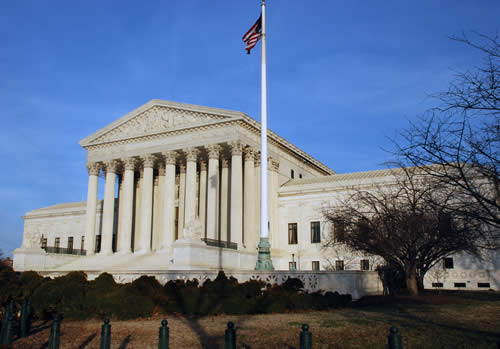 The highly regarded World Justice Project, an independent organization in Washington, D.C. that promotes the rule of law, has used 47 indicators organized around nine themes to generate a so-called “Rule of Law Index.” Using this Index, the World Justice Project then ranked 99 of the world’s nations according to the extent to which the rule of law was truly operative in those nations’ daily life. The United States ranked nineteenth.
The highly regarded World Justice Project, an independent organization in Washington, D.C. that promotes the rule of law, has used 47 indicators organized around nine themes to generate a so-called “Rule of Law Index.” Using this Index, the World Justice Project then ranked 99 of the world’s nations according to the extent to which the rule of law was truly operative in those nations’ daily life. The United States ranked nineteenth.
This ranking is surely respectable. Americans could conceivably be pleased the United States compares so well to nations such as Zimbabwe, Afghanistan, and Venezuela, which do in fact appear at the bottom of the World Justice Project’s ranking. But at the same time Americans could be disappointed that the top four nations are, in order, Denmark, Norway, Sweden, and Finland. What’s more, other nations with a common law heritage such as Australia, Canada, and New Zealand also rank higher than the United States.
The ranking is especially surprising given familiar American boasting that their nation lives by the rule of law rather than by the rule of men and that their nation is exceptional in this regard. A belief in the rule of law, in my opinion, has been a central tenet of American ideology since the earliest decades of the Republic. However, all ideological tenets should be subject to vigorous critique, lest they be used for political purposes.

An American exceptionalist might hold that tenet considering the country’s likely higher cumulative ranking going back to, say, 1789.
Presidents and others have championed the rule of law and boasted of its importance in the U.S. since the earliest days of the Republic. But how much has the country truly lived by the rule of law? Lincoln suspended habeas corpus. Roosevelt tried to pack the Supreme Court. Bush cast Desert Storm as a defense of the rule of law. I tend to think of the expressed belief in the rule of law as not a lie but rather as at best aspirational.
Our profession is based on the idea the “rule of law” is a fixed concept. If it is merely aspirational, does that make our profession merely aspirational also?
I wish I could bring a claim under the Lanham Act against the U.S. Supreme Court for having “Equal Justice Under Law” carved into its front portico. That seems like a classic case of deceptive advertising.
Ranking 19th is not respectable. It is a sad commentary on the leaders of our country.
Your post was based on a comparison of the U.S. to other countries. So what is your response to the issue I raised, which is how has it done compared to other countries long-term, not how has it done compared to an ideal?
The World Justice Project didn’t say anything about the United States’ record over time. The ranking of various countries with regard to their true commitment to the rule of law was for the most part ahistorical.
My own guess, for what it’s worth, is that while American leaders have championed their country’s commitment to the rule of law since the earliest days of the Republic, these statements have never really matched up with social realities.
My special interest is in a belief in the rule of law as a tenet of American ideology. I don’t take ideology in general to be conscious falsehood. (I’d call that propaganda.) For me, ideology takes the form of normative beliefs, ideas, and goals, and it can be found in all regimes.
Ideology’s impact on social policy and political programs should not be overlooked. Without being disingenuous, a belief in the nation’s commitment to the rule of law, for example, can and does help obscure some of the tawdrier aspects of American law and legal institutions.
In your May 26th, 2015 at 5:24 pm comment you asked “But how much has the country truly lived by the rule of law?”
Pretty well, as even the ahistorical survey you cited indicates. The Constitution expresses concern for “our Posterity”, and I consider my descendants likelier to continue to live under the rule of law here than anywhere else.
You assert “a belief in the nation’s commitment to the rule of law … can and does help obscure some of the tawdrier aspects of American law and legal institutions.” The short answer is, No it doesn’t. At greater length, if the nation has not been committed to the rule of law, how does it have the ranking you cited, and have it with institutions that go back centuries?